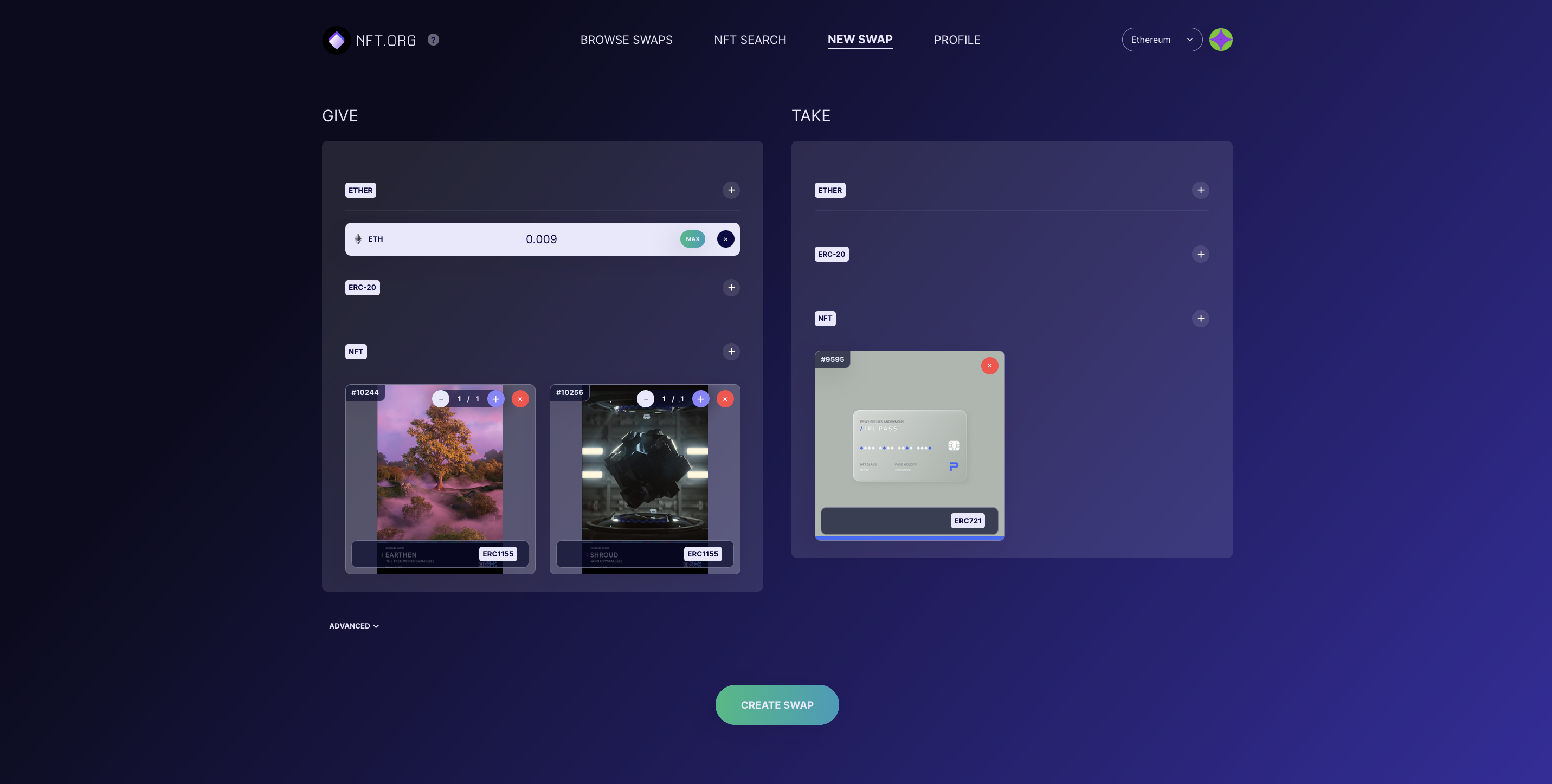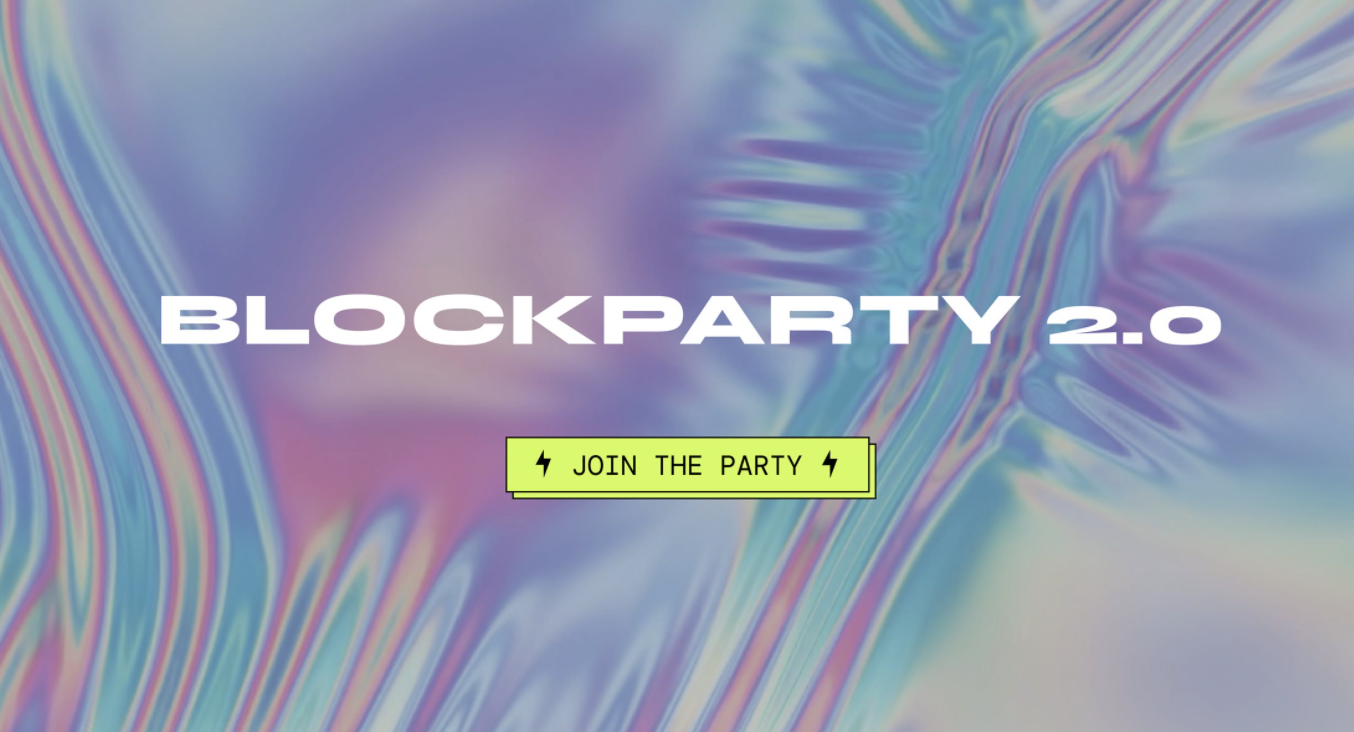Today, on April 21st 2022, NFT.org is set to launch its decentralized exchange (DEX) into a public beta phase after weeks of gathering feedback from users participating in private Alpha testing. Powered by Blockparty's sister company NFT Protocol, the NFT.org DEX is setting the stage for a new era of secondary markets and liquidity in NFTs.
NFT Protocol & the NFT.org DEX
The NFT Protocol project was conceived by Blockparty in August 2020 and is designed to power the NFT.org NFT DEX, a community-focused, decentralized NFT trading protocol that permits collectors to bundle, swap and sell digital assets in ways that haven’t existed until now. In the near future, we plan to vertically integrate the NFT.org DEX into the Blockparty platform to support our secondary market infrastructure.
"We set out to build a product for the NFT space that we believe to be the future of NFT trading", expresses Jake Cox, Community Manager at NFT Protocol. "We couldn’t be more pleased to be delivering the NFT.org DEX to the NFT space at a time when the perils of the hybrid NFT marketplace architecture have never been more apparent."
100% Decentralized & On-Chain
The current hybrid on/off-chain architecture common across many NFT marketplaces today is highly complex, often comprising of several smart contracts interacting with each other and other off-chain components.
Typically, marketplaces require you to give them a signature by signing a message with your wallets. User signatures are then stored off-chain on centralized servers and are utilized to authorize transfers of on-chain assets on your behalf. This model has its benefits as it minimizes the number of transactions requiring you to pay gas, but it also exposes users to increased security risks and is prone to regular breakdowns and disruptions.
On the NFT.org DEX, users do not have to deploy NFTs to centralized smart contracts of an exchange that hackers can potentially exploit. Instead, offers, listings and trades are created and executed entirely off-chain and zero information on users is collected in the process. Jake articulates that this is important as it "eliminates all third-party risk and places the security of the system entirely into the hands of the user and the user's own private key security practices."
Furthermore, because NFT Protocol is 100% decentralized it's not susceptible to the sorts of user obstructions and regular distrubances that some hybrid NFT marketplace models often face. "If it’s on-chain it can be traded via NFT Protocol 100% of the time. The blockchain doesn’t discriminate nor does it sleep", Jake says.
Multi-Asset Trading
NFTs can be bought and sold just like any other cryptocurrency. The only difference is that while cryptocurrencies are fungible, NFTs are non-fungible and therefore unique. This lack of liquidity in the NFT market means that it can be difficult to re-sell NFTs on the secondary market or trade with other assets.
"The multi-asset trading facilitated by NFT Protocol and the NFT.org DEX can improve liquidity by allowing NFTs to be paired with more liquid NFTs and/or fungible asset types", Jake says. This will open up the doors for more complex and dynamic offers and listings to take place using any combination and quantity of supported asset types. Supported asset types include:
-
-
ETH/MATIC
-
ERC-20
-
ERC-721
-
ERC-1155
-
Multi-Chain Support
The NFT.org DEX facilitates the trustless exchange of NFTs with other assets on Ethereum and Polygon. "As the NFT space continues to grow and expand there will be a growing number of blockchains hosting NFT activity and catering to different niches within the NFT space", Jake says. Looking toward the future, the team plan to expand the DEX to include other chains to cater to the evolving needs of the NFT community and its markets.
The $NFT Governance Token
Powered by its $NFT governance token, NFT Protocol is on its way to evolving into a fully-fledged DAO. Token holders can have a say in project and product decisions, approve expenditures from the governance pool of $NFT tokens and manage the NFT Protocol Treasury.
Grounding decision-making in the needs of the community is pivotal to building meaningful products within the web3 space. "We believe that a decentralized NFT trading platform such as NFT Protocol should not only be driven and influenced by its user base but it should also give back and reward them as well", states Jake.
Find out more juicy details about the $NFT governance token, including the different phases and rewards, in NFT Protocol's latest newsletter.
What's Next?
After the V2 Beta launch, NFT protocol will begin preparations to start powering up Blockparty's secondary marketplace, including the implementation of programmable royalties and fee structures, flow blockchain integration and $NFT rewards claim contracts.
The NFT Protocol team have worked tremendously hard over the past few months to bring the DEX to life. We couldn't be more excited to offer creators and collectors the opportunity to securely swap, trade and sell digital assets in this new era of secondary markets and liquidity in NFTs.


.png)
.png)
